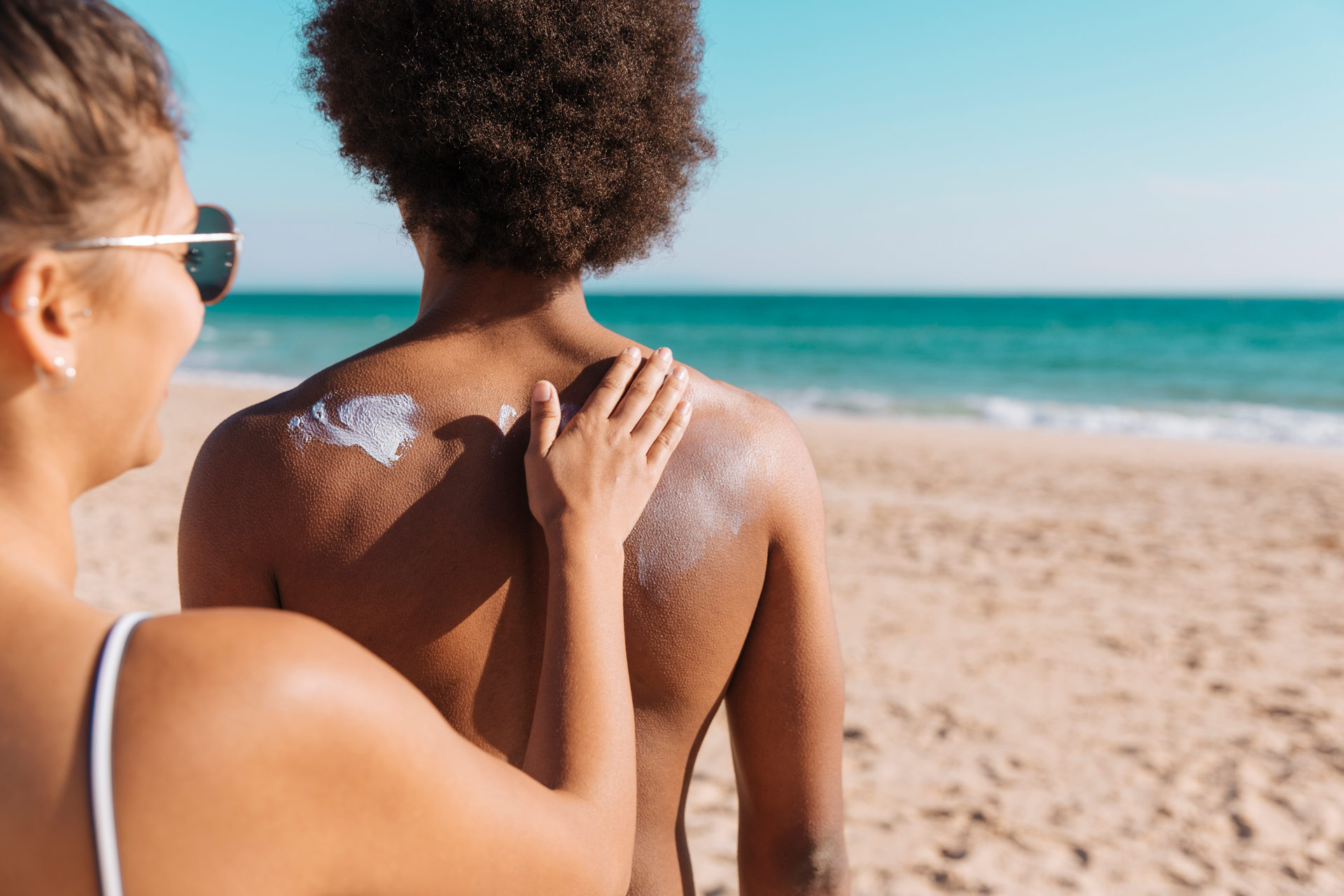
Physical Versus Chemical Sunscreen: What To Know About SPF + Pros & Cons
You know you need to apply sunscreen, sure. You may even know how much you need to apply (about a shot-glass worth) and how often you should do it (about every two hours). But do you know what type of SPF you should be using—or that there are even two very distinct categories of SPF? Well, if that last point stumped you, you’ve come to the right place. Let us explain the world of physical and chemical sunscreens, how they work, and the various pros and cons.
What is physical (mineral) sunscreen?
Physical sunscreens are SPFs that manually block the sun and UV rays from your skin. Think of them like a reflecting plane of glass: The rays hit the SPF and bounce off, shielding the skin below from damage. The two ingredients used to create a physical sunscreen are zinc oxide and titanium dioxide.
“Zinc oxide is a mineral that reflects light, including longer wavelength UVA, from the skin’s surface,” says board-certified dermatologist Loretta Ciraldo, M.D., FAAD. “It is one of only two mineral (also referred to as “non-chemical” or “inorganic”) sunscreen active ingredients, but it is the only one that is effective at blocking UVA since titanium dioxide doesn’t effectively block UVA.”
Pro: Safest for skin and environment.
At the moment, zinc oxide and titanium dioxide are the only two ingredients the Environmental Working Group has deemed safe for use and effective at protecting the skin from UV damage. And as long as the minerals are non-nano (read: aren’t broken down into smaller bits), they are deemed safe for oceans as research shows they don’t cause coral bleaching or affect marine life.
Con: Many leave a white cast.
“It does make a white cast on the skin, and it makes the SPF thick in consistency,” says Ciraldo. This is a notable issue for many, especially darker skin tones. Given that we should be wearing SPF daily, a thick, foggy film on the skin every single day is a nonstarter for many (rightfully so). Many brands are, we should note, getting better at masking the white cast and making it blend in easier. So it may take some testing around, but you may just find the right option for you. (We also did the work and found options for any skin tone that you can check out here.)
Pro: Helps with acne.
“Zinc oxide is arguably the most skin-calming of all the active sunscreen ingredients,” says Ciraldo, which can help with sensitive and acne-prone skin. It’s also noncomedogenic, so it won’t clog pores and cause acne.
What is chemical (traditional) sunscreen?
Chemical sunscreens—like those with active ingredients like oxybenzone, octinoxate, octisalate, and avobenzone—work by absorbing the UV rays, triggering a chemical reaction, which then transforms the UV into heat.
Con: Some have been shown to cause coral bleaching.
There’s a reason some countries and even U.S. states have banned oxybenzone and octinoxate: They have been shown to cause coral bleaching (or lightening of the coral’s usual vivid colors) as well as pose a significant danger to marine life.
Pro: Easier to formulate with and more sensorially appealing.
These ingredients are usually thinner, spread easier, and formulate better with other skin care ingredients. Because of this, they are very commercially popular in traditional sunscreens.
Con: Absorbs deeper into skin and can be allergens.
Studies continue to show that many of these ingredients—oxybenzone and avobenzone, in particular—absorb into the bloodstream, even after one use. Researchers generally haven’t come to a consensus on what they do once they are absorbed, but perhaps best to skip until we know.
Experts agree: “Try to avoid the sunscreen ingredients oxybenzone and octinoxate. They are significant skin allergens and have been shown to have some estrogen-mimicking effects on the body,” physician Sarah Villafranco, M.D., writes about ingredients to avoid.
Article Source: mindbodygreen.com





